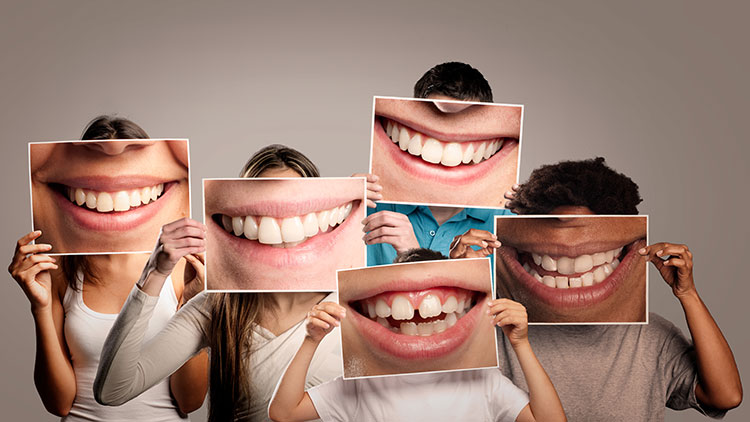
At Dr. Balog’s office we are constantly trying to find new insights and tips to share with our patients in order to help them enjoy a healthy mouth with strong teeth. While your dentist and regular professional check-ups are critical, the food you eat, and your dental hygiene practices are equally as important to having and keeping a healthy smile.
From preventative maintenance to dental products, we’ve offered many tips and tricks on our blog in 2019 to help you get more informed about your dental health. Based on blog post traffic and shares, we have compiled the five most popular dental tips from 2019. Here they are and do not hesitate to reach out if you have any questions.
5 Foods to Eat for a Healthier Mouth & Stronger Teeth
When it comes to tooth decay, your tooth enamel is your greatest defense. The enamel is the hard, outer surface of the tooth and is the hardest mineral substance in your body. While the enamel is the mouth’s natural defense against decay, your diet is what determines how strong your enamel is.
While there are a variety of treatments to address eroded enamel, the best treatment is preventative in nature. In addition to regular dental cleanings and checkups, avoiding acidic foods, alcohol, caffeine and foods high in starches and sugars is a step in the right direction. In addition to avoiding these foods, there are foods you should incorporate more of into your diet.
Common Causes of Bad Breath & What You Can Do About It
Nobody likes having it or smelling it on someone else, but pinpointing the cause of your bad breath (halitosis), can sometimes be a challenge because there are some many factors that can contribute to it. In some cases, brushing and mouthwash simply isn’t enough.
Before you start cutting foods out of your diet or carrying a toothbrush with you everywhere you go, you must first get a sense of what could possibly be causing your bad breath. Especially if you seem to have bad breath on a consistent basis, you’ll need to consider the common causes.
Are You Using the Right Toothbrush?
The bottom line when choosing a toothbrush comes down to a few key things: selecting a brush that works for your lifestyle, choosing a brush that doesn’t make your teeth hurt or your gums bleed, and looking for the American Dental Associations (ADA) seal of approval, which means that it meets the standards for both cleaning your teeth properly and doing so safely.
Here’s What You Should Do If Your Tooth Gets Knocked Out
It might make you cringe thinking about having a tooth knocked out, but your response to something like this could be the difference between salvaging the tooth and requiring significant dental work. The good news is that a tooth that has been knocked out of the socket can often be successfully replaced if you take the right action as soon as possible.
A tooth can be knocked out of the socket in many ways, typically from some sort of trauma or blow to the mouth. We see this most often with people who play contact sports. Preventing these kinds of incidents is key, which is why we recommend athletes wear mouthguards.
If you find yourself or a loved one in this situation where a tooth has been knocked out, it is important to remain calm in order to address the issue effectively. In addition to immediately scheduling an emergency appoint with your dentist, there are some questions you need to ask yourself.
Dry Mouth (Xerostomia) Isn’t Just Uncomfortable – It Causes Tooth Decay
One of the biggest contributors to tooth decay is dry mouth. Combine dry mouth with sugary drinks like juices, sodas, teas or sweetened coffees and the likelihood for tooth decay or cavities increases dramatically. While you may just see dry mouth as an annoyance, it’s much more than that, and if left untreated, it can cause further oral health concerns.
The technical term for those experiencing chronic dry mouth is xerostomia (zero-stow-me-uh) and is a condition impacting the production of saliva in the salivary glands. There are a number of symptoms for dry mouth.

 Request an Appointment
Request an Appointment